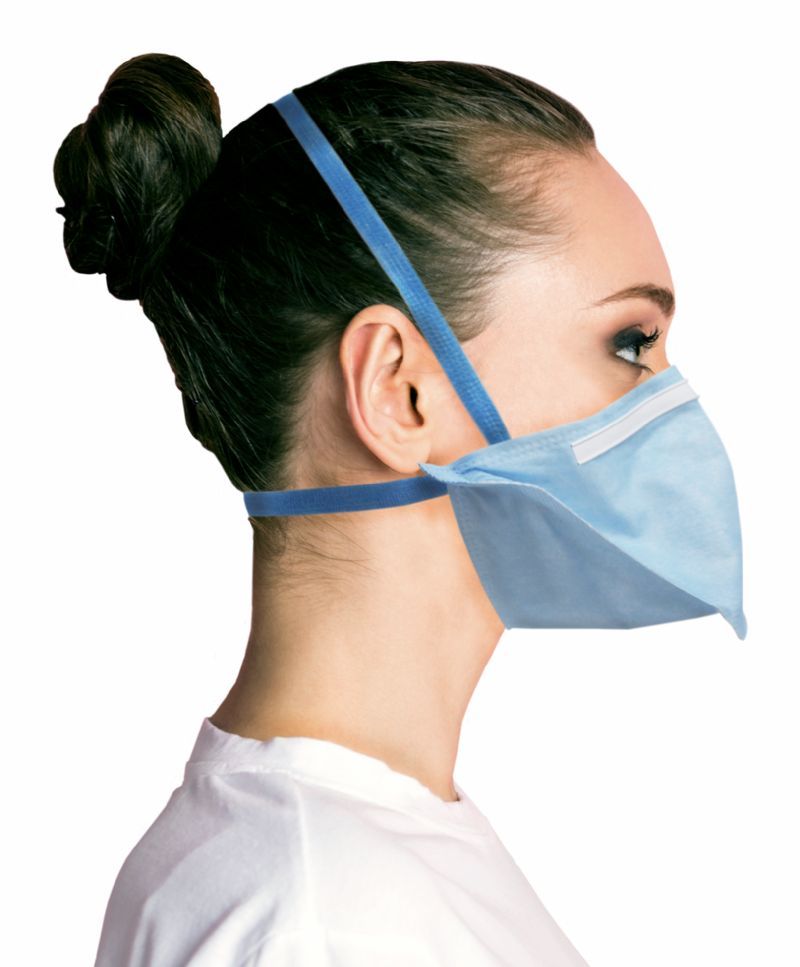 Written by Mike Price, OT
Written by Mike Price, OT
With the development of the COVID-19 pandemic, there is perhaps nothing more essential for safety than respirators and/or surgical masks to protect users from the virus. Masks and face coverings fulfill the invaluable role of protecting the wearer from the virus and/or preventing the virus from being spread from the wearer
The highest-rated and most effective mask for protection from the virus is the N95 respirator mask. These masks are designed to provide a very close fit to the user’s face, which then ensures that the overwhelming majority of air being inhaled is filtered through the mask’s specially-designed filtration composition. The “95” of N95 means the mask is capable of blocking at least 95 percent of 0.3-micron test particles from being inhaled—significantly more than is filtered by other products.
While the FDA temporarily approved the use of the KN95 for healthcare workers as protection against Covid-19, the Emergency Use Authorization was revoked in June of 2021. The FDA is no longer providing oversight for the importation of KN95 masks into the U.S. The only FDA approved surgical respirator is the NIOSH certified N95. NIOSH is a division of the Center for Disease Controls which tests the efficacy of masks for medical use.
 |
Made in USA As low as $0.57 per mask |
The manufacturing of standard N95 masks was constrained in 2020 and was significantly restricted by the Federal Emergency Management Agency (FEMA) to ensure their provision exclusively to hot spots as part of the disaster relief process. This is no longer the case! N95 masks are no longer restricted and supply is currently sufficeint in the United States. The FDA enacted a whitelist for acceptible subsitutions in 2020, but now that N95 supplies are no longer threatened, the FDA has backed off of several Emergency Use Authorizations (EAUs) that were designed to help manage the pandemic response. The NIOSH approved N95 surgical respirator is now the only FDA approved surgical respirator mask for healthcare workers.
Thou some KN95 masks provide the same level of protection as standard N95 masks, there are no U.S. governing bodies to ensure that a KN95 purchased by consumers or healthcare workers is, in fact, the protection it claims to be.
KN95 masks might provide the same level of protection as standard N95 masks, but there is no longer any way to tell if marketing claims made by KN95 manufacturers are true. In fact, the FDA has revoked authorization for all surgical respirators except the NIOSH approved N95.
In February 2021 the FDA revoked EAU of decontaminated respirators. NIOSH N95 masks are single use, and no other mask is approved for use by healthcare workers in response to the Covid pandemic.
In light of the increase in production of NIOSH approved N95 masks, there is no longer any reason to purchase a KN95 for medical use.
KN95 mask manufacturers claim to prevent at least 95 percent of particles as small as 0.3 microns from being inhaled by the wearer. The FDA no longer authorizes this mask for emergency use, however. A NIOSH approved N95 mask is the best protection on the market.
For the best protection we recommend Rehabmart recommends the ACI NIOSH approved N95 because it is cost effective, comfortable, and made in the USA. We do still have some stock of responsibly sourced, verified, and trusted KN95 masks for essential workers or traveling consumers who are not healthcare workers. Our imported KN95 masks were inspected by the FDA at customs to verify their safety and effectiveness. To order mask protection against Coronavirus or other protective PPE wear, view the Covid-19 Response Items in stock at Rehabmart.com.

Co-Founder of Rehabmart and an Occupational Therapist since 1993. Mike has spent his professional career working in multiple areas of Occupational Therapy, including pediatrics, geriatrics, hand therapy, ergonomics and inpatient / outpatient rehabilitation. Mike enjoys writing articles that help people solve complex therapeutic problems and make better product choices.